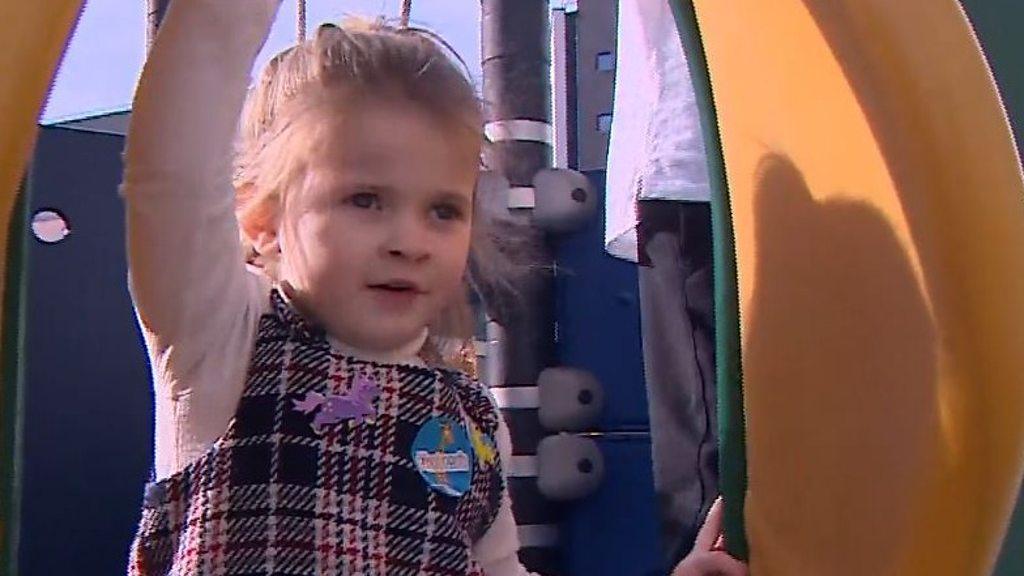Cystic Fibrosis: The grandfather and grandson who must remain 2m apart
- Published
Lorcán was diagnosed with cystic fibrosis (CF) as a newborn baby
Social distancing has become the new normal during the pandemic.
Millions across the UK have also had to "shield" due to their high risk of needing hospital treatment if they catch coronavirus.
An end to some restrictions is in sight - shielding is due to be paused at the end of July in Northern Ireland while social distancing has been reduced to 1m (3ft) with restrictions.
But Dr Ian Banks and his three-year-old grandson Lorcán Maguire, both from County Down, will not benefit from these changes.
They have always lived 2m apart.
Dr Banks has not held Lorcán since his grandson was diagnosed with cystic fibrosis (CF) - a genetic condition that can cause fatal lung damage.
He last touched him when his daughter, Jen Banks, visited his home to tell him about the diagnosis following a heel-prick test given to all newborn babies in the UK.
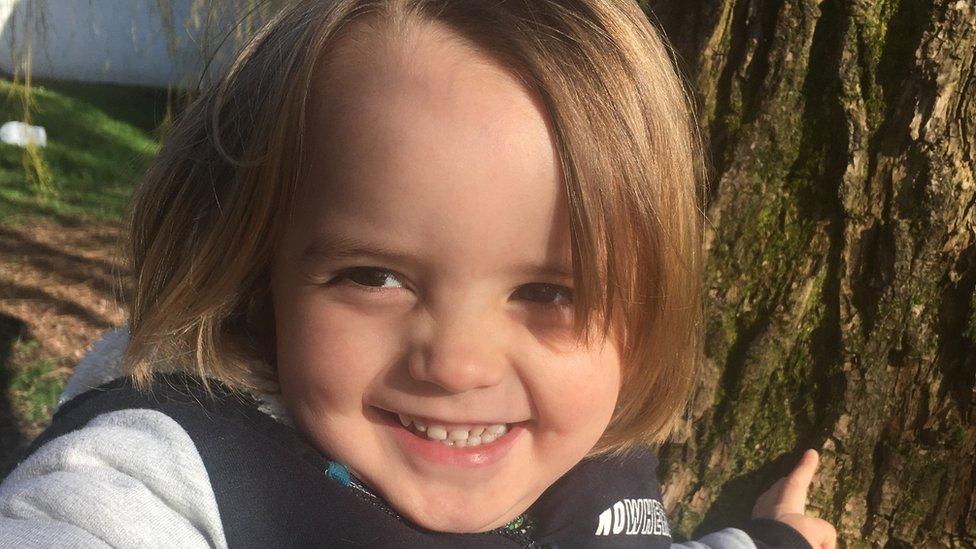
Lorcán Maguire has had to stay 2m apart from his grandfather since he was diagnosed with Cystic Fibrosis (CF) as a newborn
In a cruel twist of fate, the former A&E doctor has a long-term lung infection that could be deadly to his grandson.
"Ever since then, I have never come closer to him than 2m or 3m, and always downwind and never in the same room," he said.
Dr Banks said he had a good medical understanding of the need to stay 2m apart, not only with Lorcán, but also with his parents, due to the risk of cross-infection.
But he said it was heartbreaking to do so.
"Even with all that medical training, your relationship with your own child is very different," he said.
"We have been in social isolation for three years when it comes to our family.
"I can't even hug my own daughter, I haven't touched Jen since Lorcán was born.
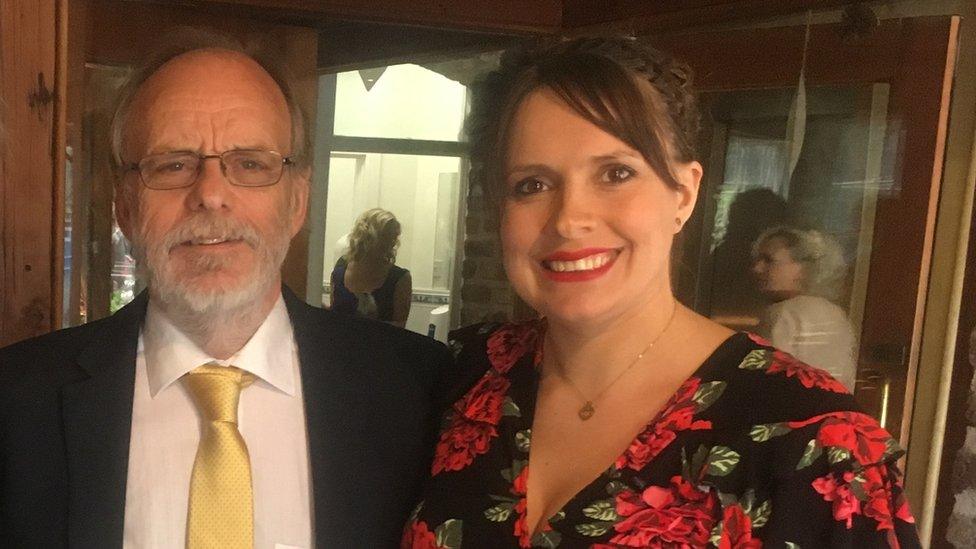
Dr Ian Banks says he has not hugged his daughter Jen since Lorcán's diagnosis
"It's a huge strain on your relationship, particularly when you are used to touching people as humans are."
Despite the challenges, Dr Banks said Lorcán looks healthy, is a "wonderful little fella" and a credit to his parents.
"Even the tiniest things we take for granted can be lethal when it comes to CF, so you are constantly worrying over whether you are going to give this child an infection," he said.
"You never get used to it, when the virus crisis declines we will still be where we are."
Jen said the need to be apart from family was "one of the worst things" about her child's diagnosis.
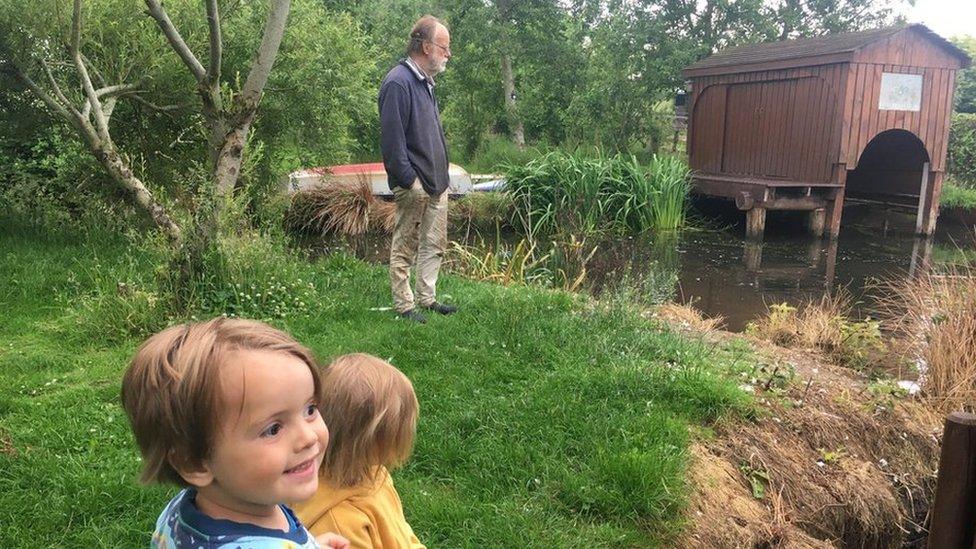
Dr Ian Banks cannot go within 2m of his grandson Lorcán because of a potentially life-threatening infection
She said it went against instinct not to hug her dad out of fear that it could hurt her son and that it "never felt normal" despite the passage of time.
"From the start of them being together, they have always been 2m apart," she said.
It has meant many difficult decisions around whether Jen's father or her son attend birthdays, weddings and funerals, while extended family Christmases are virtually impossible, she added.
"Family is the most important thing in most people's lives so not to be as close to them as you want to be, not to be able to share a meal in the same house, not to be able to come and visit with you, it's not ok," she said.
'Love is tactile'
Jen said she vividly recalled the last touch between her father and son.
"I put Lorcán into his arms before I told him [the diagnosis] because I wanted him to feel him - love is so tactile," she said.
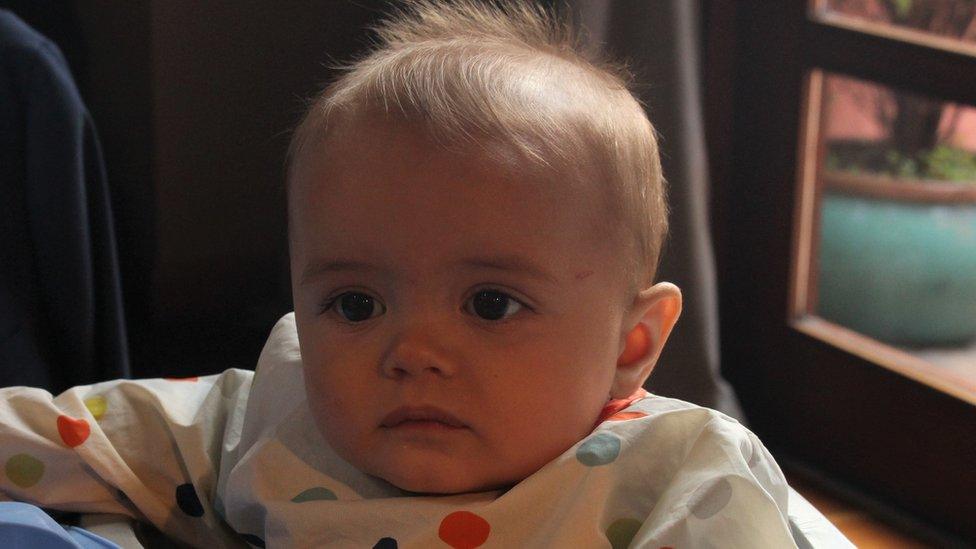
Lorcán Maguire as a baby
"I said: 'We've some bad news. Lorcán has been diagnosed with CF'.
"My dad handed him straight back into my arms. He knew immediately he could be a risk to Lorcán.
"He has never held him again, very rarely been within 6ft, never held his hand, lifted him on his shoulders, any normal things a grandfather would do with his grandson."
Dr Banks said it was an "absolutely heartbreaking" moment that had repercussions throughout their family.
Jen said there were "dark days" during which they campaigned with the CF community for access to the best treatments.
"Since he was born we have been fighting - fighting for access to the right drugs, fighting infections we can't clear, it's been awful," she said.
The situation improved when Lorcán was prescribed the life-extending drug Orkambi after it was made available in Northern Ireland at the end of 2019.
Lorcán has thrived on Orkambi but campaigning continued for Kaftrio, another groundbreaking drug that tackles the underlying causes of the disease by helping the lungs work effectively.
Health Minister Robin Swann said last week that a deal had been struck with the makers of Kaftrio, which will also become available on the NHS.
The Cystic Fibrosis Trust has described the drug as life saving and Mr Swann said the importance of the deal to affected families "cannot be emphasised enough".
Jen said the news was a "complete dream".
'There is now light'
Although there are no clinical guidelines as yet, she hopes Lorcán will start Kaftrio when he is six - subject to the age limit being reduced from 12 - finally enjoying a more normal relationship with her father due to a reduced risk of cross-infection.
"Obviously we still need to social distance until then, but there is light at the end of the tunnel," she said.
She said she was "incredibly grateful to the NHS" and Lorcán's CF team who were "the best in the world" and added that campaigning for those who would not benefit from Kaftrio will continue.
Dr Banks described Kaftrio as a "game-changer" that should enable Lorcán's body to work normally.
"It is very hard, even with a medical background, to maintain what we are doing," he said.
"At the age of 70 I think I am allowed to be optimistic, I think the future for these children is so much brighter.
"I am looking forward to his sixth birthday because that is when he is going to start [on Kaftrio] hopefully, and that will be the first time since he was born I will be able to give him a hug."
- Published29 October 2019
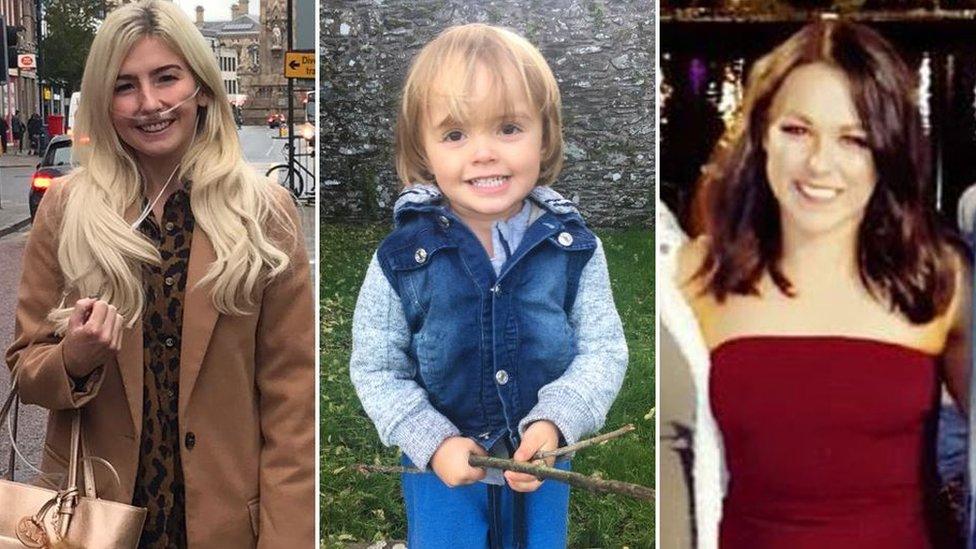
- Published20 September 2019
